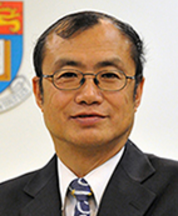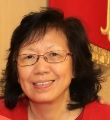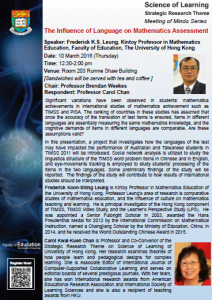The Influence of Language on Mathematics Assessment

Speaker: Professor Frederick K.S. Leung, Kintoy Professor in Mathematics Education, Faculty of Education, The University of Hong Kong
Date: 10 March 2016 (Thursday)
Time: 12:30-2:00 pm
Venue: Room 203 Runme Shaw Building
Chair: Professor Brendan Weekes
Respondent: Professor Carol Chan
Register
Abstract
Significant differences in mathematics achievement among students in different countries have been observed in recent international studies such as TIMSS and PISA. While a cultural explanation has been suggested to account for the differences, the role of language, an important component of culture, in affecting students’ learning and assessment of mathematics has hardly been investigated. There seems to be an assumption that mathematics is learned in roughly the same way through different languages. The ranking of countries in international studies has assumed that once the accuracy of the translation of test items is ensured, items in different languages are essentially measuring the same mathematics knowledge, and the cognitive demands of items in different languages are comparable. Are these assumptions valid?
In this presentation, how language may have influenced mathematics assessment will be discussed. A research project that investigates how the languages used in the TIMSS tests may have impacted students’ mathematics performance in TIMSS will be introduced. The project investigates the differences in linguistic structure between the TIMSS mathematics word problem items in Chinese and in English, and the possible impact of the differences on Chinese speaking and English speaking fourth graders in Taiwan and Australia respectively when they process the TIMSS mathematics items in the two languages. Social network analysis is utilized to study the linguistics structure of the TIMSS word problem items in Chinese and in English, and eye-movements tracking is employed to study students’ processing of the items in the two languages. Some preliminary findings of the study will be reported, and the significance of the study will be discussed. The findings of the study will provide evidence to support or refute the language independence assumption of international studies, and will thus contribute to how results of international studies should be interpreted.
About the Speaker
Frederick Koon-Shing Leung is Kintoy Professor in Mathematics Education of the University of Hong Kong. Professor Leung’s area of research is in comparative studies of mathematics education, and in the influence of culture (in particular the Confucian Heritage Culture) on mathematics teaching and learning. He is principal investigator of a number of major research projects, including the Hong Kong component of the Trends in International Mathematics and Science Study (TIMSS), the TIMSS Video Study, and the Learner’s Perspective Study (LPS). Professor Leung is one of the editors for the Second and Third International Handbooks on Mathematics Education, published by Springer, and a member of the editorial boards for a number of major journals in mathematics education. He was appointed a Senior Fulbright Scholar in 2003, and was awarded the Hans Freudenthal Medal for 2013 by the International Commission on Mathematical Instruction (ICMI) in recognition of his long time contribution to research in mathematics education. He was named a Changjiang Scholar by the Ministry of Education, China, in 2014, and he received the World Outstanding Chinese Award in 2015.
About the Respondent
Carol Kwai-Kuen Chan is Professor at the Faculty of Education and Co-Convenor of the Strategic Research Theme on Science of Learning. Her research in learning sciences examines theories of how people learn and designs for promoting complex learning. She is internationally known for her research on knowledge building that examines how students engage in problem-centred inquiry for knowledge creation supported by Knowledge Forum. She is Associate Editor of International Journal of Computer-Supported Collaborative Learning and serves on editorial boards of several prestigious journals in education and psychology. Her research also examines the socio-cultural context of learning including the edited volume Revisiting the Chinese learners. With her team, she has won international research awards from American Educational Research Association and International Society of Learning Sciences and she is also a recipient of the Distinguished Faculty Teacher and University Teacher Fellow awards.




